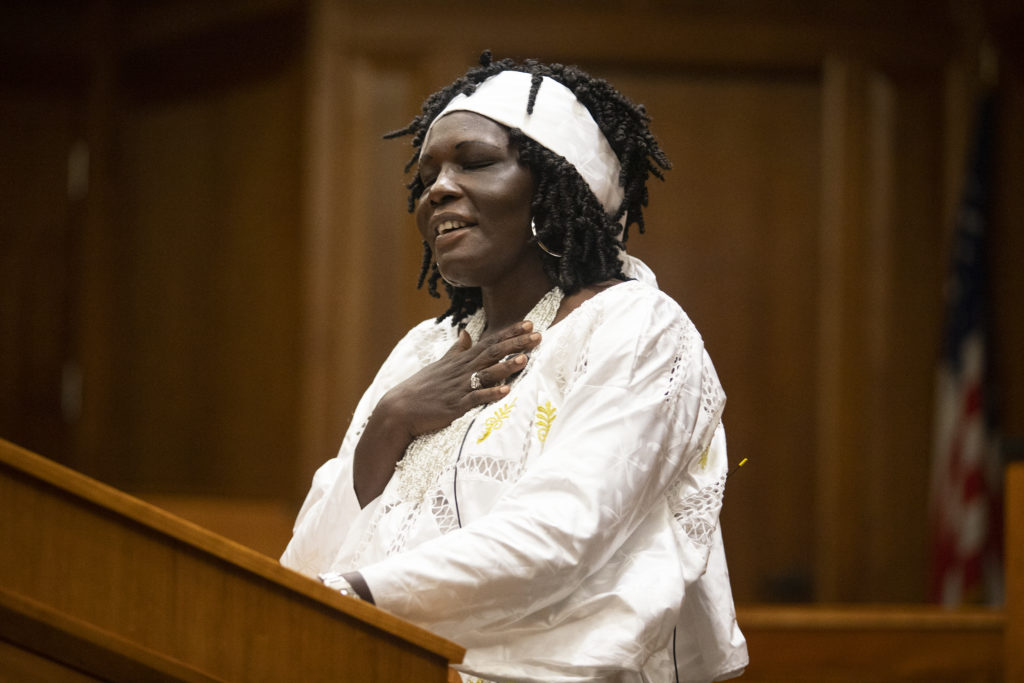
Peace activist and asylee Karak Mayik Denyok Miakol accepted a bonsai tree Wednesday, Sept. 11, from the BYU Center for Conflict Resolution in recognition of her outreach in humanitarian aid. As the founder and president of the Diar for Rehabilitation and Development Association, she works in nonprofit to educate and support children and women in Sudan, South Sudan and Uganda.
More than 100 law students, faculty and close supporters of Miakol’s cause attended the event held at the BYU’s J. Reuben Clark Law School. Becky Pratt, a friend of Miakol’s, commented on how important it was to her that her friend Miakol was receiving the award.
“I’m so glad she’s getting international attention because she has done years and years of quiet work,” Pratt said. “She’s deserved this, and I’m so thankful somebody noticed.”
Jacob Newman, a first-year law student at BYU, shared his thoughts on the importance of the work people like Miakol do and the change it inspires. He related this to the importance of bringing awareness to issues such as war crimes and the persecution of human rights.
“(Those issues are) just something that, in general, we need to be aware of in order to form a cohesive view of the universe and of the world we live in. We need to know what’s going on and what type of suffering people experience,” Newman said.
As Miakol addressed the audience, she placed her hand over her heart as she thanked the many people who supported her in her humanitarian efforts. Not only did she give thanks to individuals, but also to the work of those struggling in other countries.
“This award not only belongs to me but to the war survivors: women and children, wherever they are around the world,” Miakol said.
In fact, she too is a war survivor.
Miakol began her speech by talking about the history of South Sudan — a country of constant trading of powers and fighting for independence. A country, shes aid, where women and children are often neglected and abused.
“In my country, people believe (in) domestic violence: beating women, not giving them their rights,” she said.
Miakol said she experienced much of this during her childhood and in an abusive relationship. She said her own sister died because she submitted to the negative cultural expectations of women in South Sudan.
Miakol seeks to change that mindset by educating and empowering women and children through her humanitarian aid efforts. During her closing remarks, she offered a call to action.
“As the civilian, who is the victim, the target, I would say the support from outside is increasing the war,” she said. “So, if you want to bring peace in my country, I will give you a different option. I would ask you (to) be a mediator. Put me and my enemy together. Bring peace. Let me and my enemy … find out the solution.”




